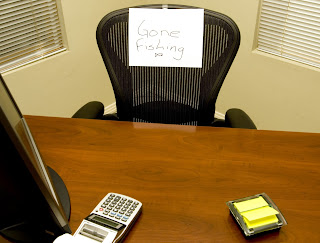 Your social media accounts all communicate messages about your personal brand - who you are and what you stand for. Your Profile Picture is a key element in this. Face perception is one of the most highly developed skills in humans, influencing how we judge someone's trustworthiness, enthusiasm and competence. It is important to have a profile picture on your accounts - research shows that you are 7 times more likely to be considered for a job if you have one. However, ensure that the picture you select says what you want and need it to say. Don't use a selfie, don't wear sunglasses, a head & shoulders shot is superior to head only, and (as noted in an earlier tip) ensure that your head is in a straight, upright position, not tilted.
Your social media accounts all communicate messages about your personal brand - who you are and what you stand for. Your Profile Picture is a key element in this. Face perception is one of the most highly developed skills in humans, influencing how we judge someone's trustworthiness, enthusiasm and competence. It is important to have a profile picture on your accounts - research shows that you are 7 times more likely to be considered for a job if you have one. However, ensure that the picture you select says what you want and need it to say. Don't use a selfie, don't wear sunglasses, a head & shoulders shot is superior to head only, and (as noted in an earlier tip) ensure that your head is in a straight, upright position, not tilted.
Thursday, December 31, 2015
Tip Thursday - Personal Branding
 Your social media accounts all communicate messages about your personal brand - who you are and what you stand for. Your Profile Picture is a key element in this. Face perception is one of the most highly developed skills in humans, influencing how we judge someone's trustworthiness, enthusiasm and competence. It is important to have a profile picture on your accounts - research shows that you are 7 times more likely to be considered for a job if you have one. However, ensure that the picture you select says what you want and need it to say. Don't use a selfie, don't wear sunglasses, a head & shoulders shot is superior to head only, and (as noted in an earlier tip) ensure that your head is in a straight, upright position, not tilted.
Your social media accounts all communicate messages about your personal brand - who you are and what you stand for. Your Profile Picture is a key element in this. Face perception is one of the most highly developed skills in humans, influencing how we judge someone's trustworthiness, enthusiasm and competence. It is important to have a profile picture on your accounts - research shows that you are 7 times more likely to be considered for a job if you have one. However, ensure that the picture you select says what you want and need it to say. Don't use a selfie, don't wear sunglasses, a head & shoulders shot is superior to head only, and (as noted in an earlier tip) ensure that your head is in a straight, upright position, not tilted.
Monday, December 28, 2015
When Push Comes to Shove
Who are you... when push comes to shove?
What are you capable of?
... Why wait until then?
We are far more capable of far more things than we are living. Usually it is our own limiting beliefs about ourselves that create the restrictions keeping us from doing and being what we can. However, it is in difficult moments, when we are forced to take actions that move us beyond these limiting beliefs, that we gain insight into our true potential.
... Why wait until then?
Why wait until we are forced into taking action? Why not step into our potential now?
Think of all you could be doing, think of all you could be feeling, think of all you could be living... if you embraced all you were capable of... now.
Our fears and limiting beliefs prevent us from taking the steps in self discovery that are required for us to move into all we can be. Those steps aren't always easy, which is why it often requires a personal challenge to provide the push and the shove to get us moving. Even then, some will dig in their heels, steadfastly refusing to release what they know to embrace the inevitable change that growth requires.
Many harbour too many self-doubts to let-go and move forward, choosing instead to believe the "I-don`ts" and "Ì`m not`s". Too many of us have a loud and strong inner voice that doesn't hesitate to share what we are not, drowning out the voice that is trying to share all that we are. When faced with situations that pressure us to take action, we rise above the I-can`ts by lending our inner champion a microphone, allowing its chants of I-am, I-can, I-will to to lead us forward. For that situation, that moment - we become.
If you can do it and be it then... you can do it and be it all of the time. Why wait for a crisis to be all that you can, to step forward into yourself? What life would you be living today if you stepped into all you could be?
Who are you... when push comes to shove?
What are you capable of?
Why wait?
Thursday, December 24, 2015
Tip Thursday - Body Language
 A unique gesture that seems to have little evolutionary reasoning or explanation is the tongue jut. This is a completely unconscious gesture where you stick out your tongue slightly, clasping it lightly between the teeth. this is usually a cue that the person has either been caught making a mistake (or faux pas) or they think that they have gotten away with something. It therefore can be a playful gesture, or a clue that the other party feels that they have pulled something over on you. The situation should tell you which is the case!
A unique gesture that seems to have little evolutionary reasoning or explanation is the tongue jut. This is a completely unconscious gesture where you stick out your tongue slightly, clasping it lightly between the teeth. this is usually a cue that the person has either been caught making a mistake (or faux pas) or they think that they have gotten away with something. It therefore can be a playful gesture, or a clue that the other party feels that they have pulled something over on you. The situation should tell you which is the case!
Monday, December 21, 2015
Speaking Up and Out
 Your voice is a tremendous communication tool. Not only is it a primary tool in helping you to share your content, but it also serves to underscore what you think and feel about your content. Additionally, it helps direct how your audience should think and feel about it too. Is your voice an asset or liability to your communication strategies?
Your voice is a tremendous communication tool. Not only is it a primary tool in helping you to share your content, but it also serves to underscore what you think and feel about your content. Additionally, it helps direct how your audience should think and feel about it too. Is your voice an asset or liability to your communication strategies?Unfortunately, few of us take the time to truly assess whether our voice works for us or not, let alone work with our voice to improve what it is saying. Given that it alone is responsible for conveying 30 percent or more of the takeaway message of our audience, failing to utilize it fully is leaving a significant part of our communications to chance.
Many communicators struggle with determining how to create a more powerful voice, often mistakenly equating it with greater volume. However, speaking louder, especially shouting, tends to sound more autocratic and demanding than it does powerful. If you are looking to move and influence your audience, then learning to use your voice more strategically may prove to the best investment you can make.
When it comes to learning how to develop your voice and make it a more powerful and strategic tool, you need to focus on the 3 P's...
1. Personality. Consider what your personality is. It has an imprint on your voice, serving to 'tell' others far more about you than you may think. However, it does mean that we want to emphasize the messages that serve us, and reduce those that don't. Having an understanding of what your personality is, along with clarity on your desired Branded Image, will help you to target those vocal elements that are working in conjunction with your Brand, and which elements detract from it. Use recordings of your voice to become more familiar with your use of Speed, Volume, Variability, Rhythm and Tone and what each is saying about you. Then being playing with each to modify the resulting messages.
2. Passion. Don't make the mistake of thinking that demonstrating Passion for your topic requires the use of Pom-poms and cheerleaders. Passion need not be loud or brash. It is an intensity that helps to communicate your Intent. What do you feel about this subject? What do you want your audience to feel about it? Passion is therefore typically going to be displayed as and through emotion. You must be prepared to show your audience you care if you want them to care.
3. Projection. There is no voice without air. It stands to reason then that the amount of breath available drives the amount of voice. Our posture (yet another "P" to be mindful of!) is directly linked to the amount and quality of our voice. To project our voice we need to utilize our belly muscles. However, if we are hunched over or compressing downward into our spines with poor posture, we no longer are able to breathe from the belly and must now attempt to speak only with air available from our upper chest. If you find that you speak too quietly you likely breathe too shallowly. Practice breathing into and from the bottom of the lungs, using your diaphragmatic muscles (your belly muscles) to push the sound up and out of you. The added benefit of breathing from the diaphragm is that you will also have a slightly deeper pitch and a rounder, more complex sound.
The easiest way to improve your vocal quality is to start playing with it, recording your attempts. Listen to your voice as it is now. What does it say about you? What elements work? What elements don't work as well? What could you try instead? How do each sound when you try them out?
One of the first changes that is typically needed is to simply learn to relax your voice. Our best voice occurs when our throat and jaw muscles are completely relaxed. Tension in these areas can make our voices sound harsh and squeezed. To help you relax these muscles... Yawn. Yawn as big as you can, opening your mouth as wide as you can and dropping the jaw fully. Finish the yawn with a long 'hum'. If you record your voice prior and then immediately following the yawn exercise you should hear an improvement, simply from speaking from a more relaxed position.
Another exercise to play with is one that is designed to help you shift your breathing to the belly. We always speak on the exhale, so you will start this exercise after an inhalation. Breathe into the belly (should see the belly go out) and then begin reciting the alphabet - letter by letter. When voicing each letter contract the belly muscles as sharply as you can, which will expel a small burst of air, which is when you articulate the 'letter' you are on. Do this for the entire alphabet.
Our voice is a tool to help us to be heard. However, it can do much more than to simply share our content, it can help drive the way our audience experiences our messages. We can use our voice to direct how they might think or feel about the information we are sharing, or to even motivate them to take action. If we are focused only on our content and not on the way we deliver it, then we are missing the opportunity to make our content memorable and for us to stand out.
Thursday, December 17, 2015
Tip Thursday - Email
 Your email address is often the first thing that people see about you and is therefore an important part of the personal brand that you're building. When job searching it is critically important. In recent studies it was found that many employers don't even look at some candidates when they possessed 'cutesy' email addresses. Let's face it, an address like zombieslayer@gmail.com is not going to get you taken seriously for a corporate gig - unless it happens to be in the gaming or zombie-slaying fields! Keep it professional and keep it appropriate. As an added note, it should go without saying that you would not use an email address from your current employer when forwarding resumes to potential future employers. I don't know why, but they seem to take umbrage with the fact that you are spending time at your current job looking for a new job. Always use a personal email and always keep it professional.
Your email address is often the first thing that people see about you and is therefore an important part of the personal brand that you're building. When job searching it is critically important. In recent studies it was found that many employers don't even look at some candidates when they possessed 'cutesy' email addresses. Let's face it, an address like zombieslayer@gmail.com is not going to get you taken seriously for a corporate gig - unless it happens to be in the gaming or zombie-slaying fields! Keep it professional and keep it appropriate. As an added note, it should go without saying that you would not use an email address from your current employer when forwarding resumes to potential future employers. I don't know why, but they seem to take umbrage with the fact that you are spending time at your current job looking for a new job. Always use a personal email and always keep it professional.
Monday, December 14, 2015
What is Your 'Resting Face' Saying About You?
 Our faces are rarely without expression, showing others whether we are: happy, sad, angry, excited, disgusted, fearful, interested, bored, passionate, skeptical... our faces say it all. In fact, we have 44 different muscles in our faces, which are capable of over 10,000 different expressions.
Our faces are rarely without expression, showing others whether we are: happy, sad, angry, excited, disgusted, fearful, interested, bored, passionate, skeptical... our faces say it all. In fact, we have 44 different muscles in our faces, which are capable of over 10,000 different expressions. It is the part of our body that most people look to in order to gauge our reaction to events. If they are trying to 'read' our thoughts, it is typically by trying to determine what our facial expressions are telling them. Is is any wonder then that when we are trying to be less transparent with our thoughts, we will seek to control our facial expressions most. We become much less animated and seek to reduce our facial affect to make us less 'readable'.
However, it is important to note that people are 'reading' us all of the time. Human beings are hard-wired into picking up on the non-verbal messaging cues of others, often taking in information at an unconscious and gut level. If we are looking to manage or control the take-away messages others have of us, we must become more consciously aware of what our non-verbal cues are saying.
Most times, when we are attempting to mask a certain message (such as nervousness) we will flatten our outward affect. In essence, we force our face to adopt a 'neutral' expression. Our 'neutral' is always our 'resting face'. This is the expression that our face assumes when we are, in essence, at rest, when we are not thinking anything in particular, are not feeling anything in particular. Our 'resting face' is our non-face. It is the expression we adopt when we are actually not expressing anything. As our personal neutral, it will typically be our go-to expression when we are attempting to mask or hide a certain signal or cue.
However, each person's neutral is actually far from it. Others will always 'see' something in your expression. It is therefore important that you spend some time coming to understand what your personal resting face is saying about you. If it is not saying what you want or need it to say then you need to learn to adopt a new neutral expression.
When at rest, our face shifts into our comfort expression. This is the look that our face will project to the world when it is essentially - at rest. When it is not formally expressing anything. However, our resting face always communicates something.
If you find that others are always asking you if you are tire, rest assured that your resting face tends to assume a tired expression - not neutral.
If you find that others frequently ask you what you're mad about, your resting expression likely tends to look angry - not neutral.
If people think that you are typically happy, it is likely that your resting expression always projects a slight smile, which is not neutral.
In order to ascertain what messages your resting face may be inadvertently sending about you...
- look at pictures of you taken during unguarded moments and determine what expression you tend to have on your face - more often than not
- consider what comments you typically get from others (like the three examples above) and think of the elements you hear most frequently
- spend time in front of a mirror putting your face into it's comfort place, the expression that feels like your neutral, and assess how you think you look
The consistent messages your receive from the three points above will provide you with clear insights into what your resting face has to say about you. Now consider... is it saying what you want others to hear? Is it conveying messages that work in support of your personal brand, or that detract from it?
If your resting face is not saying what you want and need it to consider what message you want it to be delivering instead. In essence, create your new neutral. Once you have gained clarity around what that fallback messaging would be, spend some time in front of a mirror identifying what that branded message would 'look' like, learning to identify then what that expression 'feels' like. What muscles are engaged? How much? How far?
You can't replicate the expression consistently if you have not developed your own personal means of measuring it. Understanding what it takes to create the expression allows you to duplicate and adopt it. The more consistently you do this, the more it will become a comfortable part of your expression repertoire, and the more likely that it will become habit.
We all have something to say about ourselves, even when we think we are not saying anything. What does your face say about you when it is at rest? If it's not a message that is serving you, then change it to one that does. It seems that even your lack of expression is a habit that you can modify to ensure that, even at rest, your face is telling others the story of you that you want told.
Thursday, December 10, 2015
Tip Thursday - Presence
Monday, December 7, 2015
Avoiding Meeting Overload
 Most people would agree that they spend too much of their work week in meetings. Typically this complaint is generated by time spent in ineffective and poorly run meetings. However, there is also a concern about the sheer number and volume of meetings that workers are being asked (and expected) to attend, such that they often have days spent moving simply from meeting to meeting, with no time in between to get any 'real' work done!
Most people would agree that they spend too much of their work week in meetings. Typically this complaint is generated by time spent in ineffective and poorly run meetings. However, there is also a concern about the sheer number and volume of meetings that workers are being asked (and expected) to attend, such that they often have days spent moving simply from meeting to meeting, with no time in between to get any 'real' work done!What options are there for those whose schedules seem to become consumed by meetings?
The following is a list of suggestions on how to handle a schedule that is dominated by Meeting Overload. Using any or all of these suggestions may help you to survive and remain productive throughout each of those back-to-back meetings.
1. Advance Strategies. Review your schedule and evaluate your planned meetings. Consider which you can Delete, Defer or Delegate. Get picky. There may be meetings that don't require your presence, you just need to be kept apprised of their findings. Perhaps there are others in your department that are better suited to attend, or who could benefit from the exposure or development opportunities attending in your stead would provide. Consider each meeting strategically to determine whether they merit your time or whether you have anything to contribute.
2. Apply Compression. Meetings are often scheduled to be longer than needed. Where you have the ability, shorten the time allotted or narrow the focus of the meeting to allow for a shorter meeting time. Most meetings automatically expand to fit the 'available' time. Reducing the time available simply pushes people to exercise a little more focus in their comments and discussions. This is more efficient, and typically far more effective.
3. Be an Outcome Advocate. Require that Agendas with clearly stated Outcomes be generated for each meeting you attend. If one isn't forwarded, request it. You should know prior to attending what the purpose of the meeting is, what the desired outcomes are and how you are expected to help achieve them. Better preparation on the part of the meeting convener will allow you (and all other attendees) to prep better, helping the meeting to retain focus. Who wouldn't love to have meetings ending early because they were targeted and well run?
4. Work to Hard Stops. Don`t enable inefficiency by allowing meetings to run late. Ensure participants understand the scheduled 'end' for the meeting and work through the agenda items with that end in mind. Don`t allow an inefficiently run meeting to play havoc with the rest of your day. Teach them to respect your time, and increase their meeting management skills, by forcing them to work to the schedule they set.
5. Consider Alternative Meeting Formats. If you have a full day of meetings ahead of you consider whether you can create a 'break' from sitting around one meeting room table after another by scheduling a walking meeting instead. These are perfect for when you are meeting with only one or two others. Getting up and moving not only recharges your batteries, but can also help to spur your creativity. Break the feeling of meeting monotony by switching up the location, the format, the structure.
6. Fuel Up. A day of endless meetings can be tiring, challenging your focus. Often we are left grabbing some food on the go or, worse yet, failing to eat at all. On the days that your schedule is overloaded, become more strategic about what food you are taking in. In this instance you need to use food as fuel, not to simply fill-up. Eat for the energy you want and need to have available for your day. Quality counts!
7. Standing Room Only. If you are looking to help shorten and target meetings more, arrange for everyone to stand throughout the meeting. Leg fatigue can help keep everyone on point and task focused.
8. Engage. The type and nature of your engagement influences your focus. If you are answering emails and addressing other issues... Why are you there? Staying focused on the discussion at hand not only helps to move the agenda items faster, it also serves to keep your energy up while also heightening your visibility and presence.
Meetings are an inevitable and integral part of the business world. However, an overload of meetings can quickly deplete your personal resources if you don't manage them, and your schedule, well. Use the above suggestions to help you avoid feeling overloaded or wanting to jump overboard.
Thursday, December 3, 2015
Tip Thursday - Body Language
 Watch out for the tendency to nod your head with too much frequency - like a Bobblehead. Head nods are often delivered in an effort to appear congenial and likeable, to be seen as supportive of the speaker. However, excessive head nodding can make you appear to be a pushover, like you stand for nothing on your own. Head nods are a great way to appear empathetic and demonstrate you are listening... just don't over-use them!
Watch out for the tendency to nod your head with too much frequency - like a Bobblehead. Head nods are often delivered in an effort to appear congenial and likeable, to be seen as supportive of the speaker. However, excessive head nodding can make you appear to be a pushover, like you stand for nothing on your own. Head nods are a great way to appear empathetic and demonstrate you are listening... just don't over-use them!
Monday, November 30, 2015
Are you too Passive to Promote?
 There are times when taking a passive approach, a 'don't rock the boat' perspective, may strategically be in your best interest given the situation you are facing. However, adopting passive approaches consistently will likely not serve your long term career interests if your desire is to advance.
There are times when taking a passive approach, a 'don't rock the boat' perspective, may strategically be in your best interest given the situation you are facing. However, adopting passive approaches consistently will likely not serve your long term career interests if your desire is to advance. Overly passive people are those who prefer to take the path of least resistance, who will studiously avoid upsetting others and will defer to the judgment, opinions and wishes of those around them. It is when being nice goes beyond its boundaries and becomes 'too nice'.
Don't misunderstand. Caring about others is important. However, it becomes problematic when you lose yourself to it. Other's needs should not always overshadow your own. Additionally, deferring consistently to the needs of others will make you appear hesitant, unsure, indecisive and lacking in confidence. It is this perception others hold that will grind your career advancement to a halt. If you are seen to be someone incapable of holding an opinion or making a decision, you will be left reporting to someone who does.
If you aren't sure whether you are too passive in your approaches or not, check out the following list and see if any describe you.
Passive people..
- Believe their 'fate' is in the hands of others. They will often use phrases like... "If we were supposed to be together..." or "If it were meant to be..."
- Put too much stock on 'luck' to direct an outcome or drive their success
- Often mistake failure for destiny and therefore don't learn from and push through the failure.
- Seek approval for even small things, since they are fearful of hurting or upsetting others. They will therefore often soften their language with phrases like... "I hope it's alright to tell you", "Would you mind if", "If it's okay with you". These phrases may sound nice and polite, but it's the frequency you need to be wary of. Overuse will shift you from nice to `too` nice in an instant.
- Diminish their perceived value by starting their sentences with disclaimers such as... "It's only my opinion...", "I'm no expert...", or the ever popular "I could be wrong..." People stop listening because you have already told them that you aren't going to share anything worth listening to!
- Avoid taking a stand on issues. They will highlight that both sides positions have merit, while failing to offer a firm opinion either way. You can't stand for everything or you will be seen as standing for nothing.
- Are far too deferential. They will defer their own wants and needs in favour of those of others. This appears as though they place a higher value on others' preferences than their own, which again communicates to others that their wants and needs of little importance.
- Have broken speech patterns. They will often speak with a start/stop choppiness to their sentences, with hesitations punctuated by Ums and Uhs. The lack of a smooth rhythm or flow makes them sound less confident and uncertain of their content.
- Too self critical. They will tend to use phrases such as "I can never do anything right". Though they may believe that they only say this to themselves (negative self talk), rest assured that the more negative self talk you engage in, the more it unconsciously filters into your public speaking as well.
- Poor body language. Passive people will tend to also adopt far more passive body language, avoiding eye contact, engage in minimal gesturing, compress their body down and in, will adopt protectionist stances by holding their arms close to the body or across the abdomen.
Any of these sound or feel familiar? In business it is important that we appear confident. Adopting too many passive behaviours will detract from this impression and will prevent us from obtaining the opportunities we desire. If you are looking to eliminate some of your more Passive behaviours, replacing them with more Assertive approaches, consider using the following 3 step approach.
- Identify the ways you are passive. You need to be honest with yourself, or be open to receiving honest feedback from others, and determine what are your most common passive behaviours. You need to be able to recognise the behaviour if you hope to be able to change it. Video of yourself interacting with others can be an invaluable tool, helping you to hear and see behaviours you might have missed otherwise.
- Determine what a more Assertive Behavioural alternative to that Passive behaviour would look like, sound like, feel like. In step one you identified the behaviour to change. In this step you identify your target. What are you going to do instead. For example, if you find that you tend to use the phrase "It's just my opinion" as an opening to giving voice to your thoughts, you might want to target replacing it with "I think...", or "I have found..." Neither is aggressive, but both clearly position the statement you share as your opinion. The elimination of the denigrating 'just' from the statement elevates the perceived value of your thought.
- Put it into action. I would suggest starting with one behaviour and, when it feels comfortable for you, pick up another. It is far more difficult trying to change everything at once. Changing one key behaviour at a time will actually get you there faster. Additionally, your brain will start to pick up on the unconscious messaging and will ultimately recognise 'where' you are looking to go, making other positive unconscious adjustments for you.
Thursday, November 26, 2015
Tip Thursday - Influence
 When you are looking for someone you know to comply with a request, attach a personalized sticky note onto it. Research shows that compliance to the request will almost double over a request made without a sticky note attached. Apparently the use of the sticky note makes the page look cluttered, which the brain doesn't like, calling attention to it. The personalization of the note forms a stronger connection to the person behind the request, making it more difficult to ignore. Got something you need to ask a co-worker for? Put a sticky on it!
When you are looking for someone you know to comply with a request, attach a personalized sticky note onto it. Research shows that compliance to the request will almost double over a request made without a sticky note attached. Apparently the use of the sticky note makes the page look cluttered, which the brain doesn't like, calling attention to it. The personalization of the note forms a stronger connection to the person behind the request, making it more difficult to ignore. Got something you need to ask a co-worker for? Put a sticky on it!
Monday, November 23, 2015
We've got to Nourish to Flourish
 What are the words that you whisper in your own ear? The words that you tell yourself when you
What are the words that you whisper in your own ear? The words that you tell yourself when youmess up, when you're about to step out on stage, when you're going to attempt something for the first time, when you accomplish something, when you are competing with someone for a promotion?
Do you offer yourself words of encouragement, support and love? Or... do you instead offer words of discouragement, criticism and hopelessness?
We've got to Nourish... to Flourish!In order to grow straight and strong, we have to learn to speak to ourselves with words of encouragement. We have to balance out, if not drown out, the voice of our inner critic. They have had free reign in our minds for far too long, with little provided to counter all of their You-can'ts, You-arent's, You-don'ts.
I'm not here to tell you that you can do anything. This is far too broad a statement for it to possibly be true. However, you can do anything better than you can do it right now. I can guarantee that if you try it, if you practice it... you can do it better. You might not get to be 'the' best... but you can get to be 'your' best. A far healthier and more achievable goal, and a change in perspective that is needed to get you up and out there trying!
When we start by thinking that we'll never be 'the' best at something we give up before we've begun. However, few of us need to strive to be 'the' best. Unless you're competing to be the World's Champion in something, you needn't even be bothered by the thought of it. Instead, we are simply looking to be 'our' best. We don't even know what that would look like if we never begin.
Creating a strong sense of self-worth comes through repeatedly trying something. It is through repetition that we develop the skills, experience and capability in something. However, to keep on trying we need to become comfortable with the thought and fact of failure. It's part of the trial process and an integral part of the learning experience. We can't begin to learn what 'better' looks or feels like without it. When you fail at an attempt it doesn't define you, it simply defines that attempt. Explore what didn't work and determine what to try differently in your next attempt. It's the getting back in the game after defeat that builds your resiliency, resourcefulness and, most importantly, your self esteem.
Perhaps two of the strongest words that you can tell yourself are "I Can". These two little words can be used to create and strengthen your sense of self-worth like no others.
- I can handle this
- I can figure this out
- I can make this work
- I can manage
- I can get through it
What would you accomplish if you believed you could?We can proactively build our self-esteem, creating positive momentum, by doing. Getting things done is proof that you 'can', providing the motivation needed to activate your 'more' muscle.
The following are my Top 5 Tips for how to Nourish your self-esteem, to nourish your inner Cheerleader, so you too can Flourish and grow...
- Start Small. Take on something that you can start immediately and that is relatively easy. You want to get some fast and easy wins that create the momentum of success. Offer yourself some definitive proof that you are capable and competent. Give your Cheerleader some early and easy wins to cheer about, giving them examples to help stifle your inner Critic.
- Have a vision. You want to have some clarity about where you're going. Once that ball is in motion we want it to be difficult to stop. We want your positive momentum to keep that ball constantly in motion... we just want it to be rolling in a direction of your choosing!
- Do something you're good at. Build your wins. Doing something you're good at builds examples of success that will give you the confidence you need to tackle less-skilled tasks. Proving you have talent and worth in one area helps you to handle the inevitable failures you will experience while learning something new. Failure is part of the natural process of growing and serves a very useful purpose. However, having examples of things we ARE good at, ARE capable of, ARE successful at helps us to hang in through the challenging stages of learning something new.
- So something that scares you. In order to truly flourish you are going to have to try something new. You may have talents and abilities you will never know you have if you never challenge yourself to attempt new things. To truly come to know all that you are and all that you can be you need to step outside your comfort zone and try something that makes you a little nervous, that you're a little unsure of. Just think of the doors that open for you each time you push that fear to the side though. Your cheerleader is now leading you forward saying... Wow! If you did that, maybe you can also do this! Oh... the opportunities that await!
- Give yourself Recognition. Look at everything you just did! Look at what you tried! You need to recognise your accomplishments, reward your bravery in stepping forward. It is important that your attempts and successes get noticed and celebrated, even when it's just a party of one. Even if things didn't go exactly as planned, it was a step taken in the journey of getting there. It deserves recognition. At the end of each day, highlight a minimum of 3 things that you did, you accomplished, or you tried... they are deserving of recognition. Begin learning to see your wins and to celebrate them. Build the positivity and momentum that keeps your ball rolling forward.
What would you accomplish if you believed you could?
Go and make it happen!
Thursday, November 19, 2015
Tip Thursday - Power of 'Next'
 There will always be people that don't like you or your message, opportunities that don't work out, relationships that end. We can get caught up in the 'why' of it all, such that we become stuck in a negative feedback loop. We get stuck in the ending. We can break out of the negativity by simply saying... 'Next'!
There will always be people that don't like you or your message, opportunities that don't work out, relationships that end. We can get caught up in the 'why' of it all, such that we become stuck in a negative feedback loop. We get stuck in the ending. We can break out of the negativity by simply saying... 'Next'! Give your time to the people who DO get you and your message, move on to a new, interesting and challenging opportunity, free yourself to enter into a more positive and fulfilling relationship. Shifting your brain into thinking 'Next' moves you from focusing on the ending into starting a new beginning.
Monday, November 16, 2015
You Have More Free Time than you Think!
 Perhaps one of the biggest complaints I hear from clients is that they 'have no time' and that it is this decided 'lack of time' that is preventing them from exercising, eating right, taking on new projects, moving up, moving out, moving on. The ready excuse for being unable to take on anything else is that they simply don't have the time to get it done.
Perhaps one of the biggest complaints I hear from clients is that they 'have no time' and that it is this decided 'lack of time' that is preventing them from exercising, eating right, taking on new projects, moving up, moving out, moving on. The ready excuse for being unable to take on anything else is that they simply don't have the time to get it done. However, according to Sociologist John Robinson, a professor at the University of Maryland and Director of the Americans' Use of Time Project, most people have around 40 hours of free time per week. 40 hours. It tends to beg the question - How are you using yours?
It seems that the Centre for Time Use Research, at the University of Oxford in the UK, has collected the largest and most detailed time studies, covering over 50 years, 850,000 people and 30 countries. The data they have mined from this is helping to gain perspective on the widespread perception that life today is far more hectic and busy than it has ever been. However, the time diaries tell a different story, highlighting that 'actual' hours of work have not changed substantially from the 1980's.
Why then do we all feel so time-pressed? It seems that there are a couple of consistent reasons, most notably...
- That we are all heavily influenced by the current sociological impact of the perceived need to be seen as 'being busy', that our busy-ness is an indicator of our Success.
- That time studies show that what we think we are doing and what we are actually doing are two very different things and, as a result, most people tend to over-estimate their work hours by 5-10% (in the US). Therefore we 'feel' like we are working more hours, and thereby have less available free time, than we actually do.
- That watching television is taking up more than 50% of people's free time but we tend to significantly under-estimate viewing time due to its perceived 'unproductive' nature.
- That we are sleeping more than we used to. It is found that the average American sleeps 8.75 hours per day. However, people tend to admit to sleeping less than they do because it says that they are 'busy' to others.
It has been found that there are, in fact, two groups of individuals that are working harder than ever...
- Single working parents
- Well educated professionals with young children
Interestingly, it is this second group, the time-squeezed professionals, that are having the largest impact on the perception that we are all time-starved. This group contains the academics who study time and the journalists who write about it! They therefore give greater voice to the issue than it actually merits, simply due to its relevance to their personal challenges.
If you are looking to utilize your free time more strategically, or at least to free up some time to devote to a new activity or hobby, there are some key steps you can take to reclaim some of yours.
- Undergo your own Time Study. In order to `find` time you need to understand where your time is currently spent and, in particular, where it is wasted. Keeping a time diary or activity log will help you to gain some perspective on how much time you are currently investing in various activities and allow you to make deliberate and strategic decisions on where to redirect it. Knowing that we tend to over-estimate the time spent on work and under-estimate time spent on leisure, it is important to gain some accurate perspective on where your time goes. You can use a free online tool (perhaps Toggl), set up your own Excel spreadsheet or simply create a chart and record what activity you are engaged in every 15 minutes. Most experts agree that you should complete this for an entire week and then view the results.
- Gain clarity about how you would like to spend your leisure. What are the activities you would like to engage in? What do you want more free time to do? Establishing some priorities will help you to make better decisions about what leisure activities to reduce to provide time to direct toward new ones. You will find that it will come down to wanting to do something 'more' than the thing you are currently doing. Establish those priorities before viewing the time study results so that you can better challenge your existing free time usage.
- Address your Time Confetti. We all have these short little blocks of free time over the course of our day and week that don't seem very productive. On their own they aren't nearly long enough to get anything of substance accomplished and they are therefore wasted. This is like those small blocks of space on your computer that prevent it from operating optimally. You need to defrag your PC periodically to free up that space. In essence you are doing the same thing, identifying those small chunks of time and becoming more deliberate about how they can be used. I always have a file of reading with me that allows me to get 'caught up' on background research I'm conducting during any of my time-confetti moments.
- Consolidate/Chunk your activities. Activities like 'errands' should be chunked together so that they get done all at once. This takes less time overall and eliminates some of those 'confetti' holes that might exist in your schedule otherwise.
- Reduce your TV time. Most people conducting time-studies discover that a significant portion of their leisure time is taken up by watching television. Reducing your time spent here can free up a significant amount of time that you could devote to other activities, but it needs to become a conscious choice. Much time watching television is simply 'filler', surfing around or watching something by default. Know what you want to watch and watch that, without the need to watch the shows occurring before or after. Consider also that there may be activities you want to include into your schedule that you could do while catching up on your favourite shows, thus applying the same time to two activities rather than just the one.
Our time is one of our most precious resources. How you choose to spend yours (and it is always a choice!) will have a significant impact on what you experience within and get out of your life.
Thursday, November 12, 2015
Tip Thursday - Success
 Successful people do things in the order of their importance. Therefore, they tend to plan their day in
Successful people do things in the order of their importance. Therefore, they tend to plan their day in advance. Every night take 5 minutes and write down the 6 things you MUST do the next day, in order of their importance. The following day - do them IN ORDER - so that you never fail to complete the most important items by spending your day completing less important things.
Charles Schwab and Mary Kay Ash both are reported to have used this technique - and both made hundreds of millions of dollars. A coincidence? I think not!
Give it a 3 day Challenge and see what impact it has on your productivity!
Monday, November 9, 2015
Don't Find Fault, Find Fixes
 I work with a wide variety of people, holding a variety of roles, within a variety of industries. Truly, it's a pretty diverse cross section. Despite this though, I see the same behaviours repeated throughout this cross section, behaviours that are limiting people's and organizational success. One very common behaviour is the tendency to find fault.
I work with a wide variety of people, holding a variety of roles, within a variety of industries. Truly, it's a pretty diverse cross section. Despite this though, I see the same behaviours repeated throughout this cross section, behaviours that are limiting people's and organizational success. One very common behaviour is the tendency to find fault.Some people may find fault with others to make themselves feel superior.
Some people may find fault with others to ensure they have company at the bottom.
Some people may find fault to deflect any potential blame from themselves.
Some people may find fault to deliberately hurt or wound others.
Regardless of the reason, finding fault is a selfish behaviour, designed only to benefit or serve the blamer. It is therefore a destructive and demoralizing force, weakening the team as a whole. Finding fault assigns blame and builds fear, limiting the desire of people to take risks or initiate action in the future.
Successful Leaders know that it is their job to develop the confidence of those around them, that their ultimate success will be dependent upon the team's best efforts. This requires that they build not destroy, that they fix not find fault.
It takes no particular talent or effort to find fault. Determining who is to blame for something not going right not only uses up valuable time but puts everyone on the defensive. As a result, it inhibits people's willingness and ability to resolve the situation.
Take the same energy and devote it toward fixing the problem. Successful people don't waste their time complaining about how things are, or who's to blame for them being that way. They look instead to finding solutions to the problems they face, often turning them into opportunities to help others facing the same issues.
Identifying a problem is a necessary step in resolving it, but getting caught up in assigning blame is not. Putting your energy into fixing what isn't working will do far more to contribute to your success, and that of your organization, than Fault-Finding ever will.
It is those who Fix the problems that prove themselves invaluable and therefore enjoy the success and rewards that go along with resolving the issues of others. Those who choose to continue to play the Blame-Game will find that it's a game with no true end and no true rewards. While their growth becomes stunted, those who focus on finding fixes and solutions continue to grow and enjoy the benefits their ongoing success brings.

Thursday, November 5, 2015
Tip Thursday - Confidence
 This is a very short but very powerful tip. If you want to appear confident during networking situations... stand in the center of the room. Confident people have a greater tendency to stand in the center of the 'action', whereas those with less confidence will stick to the outlying areas. Therefore, simply standing in the center will have others believing you to be confident - even when you're not feeling it!
This is a very short but very powerful tip. If you want to appear confident during networking situations... stand in the center of the room. Confident people have a greater tendency to stand in the center of the 'action', whereas those with less confidence will stick to the outlying areas. Therefore, simply standing in the center will have others believing you to be confident - even when you're not feeling it!
Monday, November 2, 2015
Just Do the Work
 We seem to live in a world of quick fixes. Everyone is looking for short cuts to get where they want to go, wanting an easy route to success. The concept of working for what you want is put down as an antiquated and outdated way of thinking, one that is far too slow in achieving one's desires. Instead, success is an immediate need, one best delivered 'overnight'.
We seem to live in a world of quick fixes. Everyone is looking for short cuts to get where they want to go, wanting an easy route to success. The concept of working for what you want is put down as an antiquated and outdated way of thinking, one that is far too slow in achieving one's desires. Instead, success is an immediate need, one best delivered 'overnight'. The 'Overnight Success' is a celebrated concept that people never seem to tire of listening to or speaking about, however it is nothing more than a seductive lie leading people to 'see' the success without 'hearing' the story of how it was achieved. The truth that few are willing to accept is that there is no such thing as an 'Overnight Success'.
"A true overnight success is someone who has carried bucket after bucket of water to fill up a well. People celebrate you the moment it all spills over, without realizing the 10,000 buckets you carried to make it happen.` Paul AngoneIt`s not simply that people don`t realize the work it took to become successful, it`s that people don`t want to hear it. They want to believe in the hope that they could do nothing today to prepare for it and yet, could wake up tomorrow... successful They avoid hearing and seeing the truth.
- The author whose `first` book becomes a number 1 bestseller. The truth? They wrote every day since they were 14 and wrote and rewrote every page in that bestseller 20 times over, living and breathing that book for the past two years.
- The inventor who launches a product that makes millions. The truth? They have a garage and basement filled with past 'ideas' that cost them time, money and even family, that never saw the light of day but screamed 'failure' to anyone who saw them.
- The entrepreneur whose new business just sold to Google or Facebook. The truth? They have had two previous businesses go bankrupt and almost lost their home in the pursuit of this latest business, facing more rejection and naysayers than those who offered support.
- The actor whose first role makes them a household name and box office draw. The truth? They waited tables to pay for acting classes, pumped gas to afford food and slept in their car to be able to go on casting calls only be told they were not 'special', were too fat, too thin, too young, too old, not pretty enough, not black enough, not white enough.
Success comes through all of the nights leading up to that last moment, all of the days and nights of hard preparatory work that were needed to create the moment that tips you into success.
You must create your tipping point by doing the groundwork. No one talks about this aspect of success simply because no one wants to hear it. No one wants to hear about the work and effort that went into creating your success because then it means that they too would need to put in that same hard work to enjoy all of the trappings of success.
But... they don't want the struggle.. they want the result. They want the 'stuff'.
It's the Lottery Mentality at play, the hope that they can go to sleep and wake up rich and successful. We all know the odds of 'winning' at this game though. The jackpot is $50 million? Sure, buy a ticket. However, this isn't meant to be your life strategy.
We may envy the winners their luck, but we admire those who have created their success. To be like them though, we need to be prepared to put in the work required to get there. We must invest in our future by putting in the effort needed to net us the desired rewards.
Hard work might not guarantee you success, but a lack of hard work surely guarantees you a lack of success. It might not be sexy, but the truth often isn't.
Thursday, October 29, 2015
Tip Thursday - Presentations
 In business meetings we are often called upon unexpectedly, requiring us to 'think on our feet' and organize our thoughts quickly. We want to sound articulate, knowledgeable and confident. The best way to handle Impromptu Presentations is to gather our thoughts using a Model of 3. Here's a couple to give you a framework of what I mean...
In business meetings we are often called upon unexpectedly, requiring us to 'think on our feet' and organize our thoughts quickly. We want to sound articulate, knowledgeable and confident. The best way to handle Impromptu Presentations is to gather our thoughts using a Model of 3. Here's a couple to give you a framework of what I mean...- Past, Present, Future (In the past we... While right now we... In the future we... )
- Cause, Impact, Solution (What's causing X is... The impact of X is... The answer is... )
- Pros, Cons, Position (What are the pros of the situation, what are the cons, what is your position?)
- Problem, Action, Results (What was the problem, what were the actions taken, what were the results achieved?)
Each of these models offers you a unique way to organize your statements, helping you to sound on top of everything you're sharing!
Monday, October 26, 2015
Who's Your Target Audience?
 We can easily get caught up in trying to be and deliver too many things to too many people. When looking to build our success it is far too easy to fall into the belief that the more people we please the greater our success will be. However, it can quickly become overwhelming, and clearly impossible, to please everyone. So where should you focus?
We can easily get caught up in trying to be and deliver too many things to too many people. When looking to build our success it is far too easy to fall into the belief that the more people we please the greater our success will be. However, it can quickly become overwhelming, and clearly impossible, to please everyone. So where should you focus?Your family and friends will always have input.
Your boss will certainly highlight their needs.
Your co-workers will offer their own take about what they want.
Your clients and customers have yet another perspective.
When you are just starting to build your career or new business it can become difficult to direct your energies to those activities that will best serve to propel you forward. You have limited and finite resources. You clearly can`t create a product that suits everyone`s needs, can`t deliver a speech that resonates fully with everyone, can`t complete a project in a way that satisfies all. How do you decide what to do, what to say, what to deliver, what to offer?
Consider using the 2 Review process (with thanks to Seth Godin for this) to serve as your litmus test. When you look at the speech you intend to deliver, the business services you are offering, the project you're initiating, write two reviews for it; a five star and a one star review.
- 5 Star Review. Write a review from the perspective of someone who was blown away by what you did and delivered. This is a review from someone who totally gets what you're doing and loves it. They admire your ambition, your drive, your vision, your message.
- 1 Star Review. Then write a review from the perspective of someone who hates your message, who is critical of the work you are doing and the direction you are taking.
Now consider... who are you investing your time in pleasing? Is your focus aimed at turning the naysayers into advocates or are you focusing on strengthening the deliverables to those who are championing you?
Regardless of whether you are just starting your career or business or have the launch of both well behind you, playing to those who love you will always prove to boost your success more than will trying to convert others to your cause.
Becoming clear about what people love, whether about you or your product, and giving them more of it is the secret sauce to success. There is a reason that corporations invest millions of dollars in consumer research... the need to continue to satisfy their customers. You are no different.
The time that you spend in trying to minimize the negative feedback and criticism, to convert the naysayers, is time away from satisfying those that are ready to buy - you and your services. Typically, the greater your success the greater the number of critics you will have.
If you have no critics you'll likely have no success. Malcolm XAll of the 'greats' in their field have clarity over their vision, and hold true to what their customers, not their critics, value and want from them. Sure, it's hard not to take it personally at times, but recognise the source. Typically, those that are critical of you, your message and your actions, are those who are not taking the steps that you are. Their attempts to hold you back are more indicative of their insecurities than they are reflective of you.
Your goal should be to create with the goal of receiving more 5 Star Reviews and not with the intention of trying to avoid the 1 Stars. Often, the best sign that you are 'making it' is that there are people who are ticked off by that very fact. The best way to deal with these folks is, of course, to follow Taylor Swift's advice and 'Shake it Off!'
Thursday, October 22, 2015
Tip Thursday - Presentations
 In business meetings we are often called upon unexpectedly, requiring us to 'think on our feet' and organize our thoughts quickly. We want to sound articulate, knowledgeable and confident. The best was to handle Impromptu Presentations is to gather our thoughts using a Model of 3. Here's a couple to give you a framework of what I mean...
In business meetings we are often called upon unexpectedly, requiring us to 'think on our feet' and organize our thoughts quickly. We want to sound articulate, knowledgeable and confident. The best was to handle Impromptu Presentations is to gather our thoughts using a Model of 3. Here's a couple to give you a framework of what I mean...1. Past, Present, Future (In the past we... While right now we... In the future we...)
2. Cause, Impact, Solution (What's causing X is... The Impact of X is... The answer is...)
3. Pros, Cons, Position (What are the pros of the situation, what are the cons, what is your position?)
4. Problem, Action, Results (What was the problem, what were the actions taken, what were the results achieved?)
Each of these models offers you a unique was to organize your statements, helping you to sound on top of everything you're sharing!
Monday, October 19, 2015
Making Friends to Build your Network
 If I asked you what the ultimate goal of Networking is, what would you say?
If I asked you what the ultimate goal of Networking is, what would you say? The most common response I get is that Networking is all about making contacts. However, this quickly becomes a far too narrow expectation. Consider what your ultimate hope and expectation is of those connections. Are you looking for those connections to offer you their knowledge and expertise? Are you looking for them to 'buy' your products or services? Are you looking for them to refer you to their contacts and connections? If your answer is yes, then you must consider the need to make them more than merely a 'contact', they need to become a 'friend'.
Certainly they don't need to become your best friend or godparent to your children, but they do need to become someone with more of a connection to you than just a card in their pocket. Building an effective network is about more than extending your business card collection, it is about establishing a network of individuals that have a solid base and connection to you. The true magic is that you can build these connections through your networking events, you just have to understand what you are looking to build, and how to do it.
Business card collectors have a tendency to attend different networking events constantly, parachuting in, working the crowd and then heading on to the next event. They rarely or infrequently attend the same event twice. Certainly, attending different events in the beginning is a smart way to identify which are the 'right' events for you. Whether looking to identify potential customers or to extend your network of contacts in your specific field, you need to find out which events they typically go to. This might take a little trial and error to start but, once you've found the right events for you and your needs, you keep going.
According to Jack Schafer, in his book The Like Switch, there is a very definitive Friendship Formula, one which the FBI perfected as a means of recruiting spies. Yes, cool foundation, but the point is that it will work for your purposes also. There are four basic building blocks to the formula:
Friendship = Proximity + Frequency + Duration + IntensityProximity - is the distance between you and the other party, your exposure to them over time. This means that there is a strong benefit to being seen at a specific networking event consistently each month. Sharing the same physical space with someone else makes you more attractive to them, establishing a connection based on commonality.
Frequency - is the number of contacts you have with someone over time. Popping into a networking event, never to show again, is all about you. Attending the same event consistently establishes a commitment to forming 'real' connections that will resonate with those looking to do the same. Simply 'seeing' you at the event each month breeds familiarity and helps to establish trust, even if they haven't had the opportunity to speak with you yet.
Duration - is the length of time spent with someone over time. We typically spend more time with people we like and engaged in activities we enjoy. Therefore, the more time that someone spends with you, the greater the bond that is established. This is not just measured by the minutes you are in direct conversation. Shared experiences count. Therefore, simply seeing your face a number of times over the course of an evening registers as a 'period' of time you have invested similarly and helps to build that sense of familiarity.
Intensity - refers to how strongly you are able to satisfy another person's needs (psychological or physical) through your verbal or nonverbal behaviours. Those who attend a networking event solely to pass out their cards are not focused on meeting the needs of others, they are focused on having their needs met. Although offering your services to help alleviate someone else's pain point is a desirable way to satisfy someone's needs, recognise that you typically should look to build to this by subtly satisfying other needs first, in smaller less direct ways. Providing them with an introduction to someone else that could be of service to them, or that may prove to be a valuable connection for them is one such way. However, simply smiling across the room at someone who looks disconnected or uncomfortable can work to establish a sense of connection and gratitude that begins the formation of a relationship even before being introduced. By satisfying non-work related needs first you help to create the belief that you are more likely to satisfy their work needs too.
Strong networks are not determined by the number of contacts you have, but by the quality of the relationship. Learning to 'make new friends' may prove to be one of the best lessons we can bring forward from the playgrounds of our childhood to help us be successful in our business careers. As with all things though, there is a science to it that can help those of us that are a little less naturally extroverted to create the business relationships that will serve us in building our businesses and careers.
For those that would like to delve a little deeper into how the FBI has used this formula to build their network of spies, I offer the link to the book below. Quite honestly, it is a fascinating read on its own as the author offers up examples of how they used the various steps and principles. However, on a lesser scale, it also has strong business applications for you.

Thursday, October 15, 2015
Tip Thursday - Influence of Expectation
 Many of us may spend time 'hoping' for good things to happen, but it is the people that actually
Many of us may spend time 'hoping' for good things to happen, but it is the people that actually 'expect' good things that will experience them more. Why? Because our expectations will often influence the outcome. Generally, our expectations (what we truly believe will happen) will unconsciously influence our behaviour which will, in turn, influence the behaviours of others around us, thus creating the experience we 'expected'. Research has shown that teachers who were 'told' which students were high IQ or low IQ inadvertently influenced the students to perform according to their expectations, even when what they were originally told about the students was untrue. The students began to behave and perform according to the beliefs and expectations of the teacher. Think about this in relation to your life and career. What are you Expecting and what are you Getting? Maybe not what you want, but likely what you expect. Change your expectations and you'll change your outcomes! (and... to be kept in the loop with other great tips... LIKE our page! I expect you will!)
Thursday, October 8, 2015
Tip Thursday - Habits
 We often have the best of intentions for creating new, positive behaviours but struggle to maintain them. One of the best ways to ensure that your new, desired behaviours get locked into habit is to set up defined 'Triggers' that help you to action that behaviour at specific times. These triggers serve as reminders that help you to activate the behaviour. Maybe you want to remember to check your schedule each morning before leaving for the office so you don't overlook meetings by being pulled off track by someone else's crisis the moment you step in the door - trigger your reminder to check by leaving your scheduler by the coffeemaker. When you go to grab your morning coffee... check the schedule. Want to learn to breathe more deeply each day? Set up some electronic reminders on your phone. When you hear the ping it's your signal to take 3-5 breaths from the diaphragm. Your triggers are most effective when they are attached to a habit that you already 'do' consistently (like having a coffee in the morning). Since this is a behaviour that is already habit your new behaviour becomes linked and anchored to this existing behaviour, helping to shift it into habit... faster!
We often have the best of intentions for creating new, positive behaviours but struggle to maintain them. One of the best ways to ensure that your new, desired behaviours get locked into habit is to set up defined 'Triggers' that help you to action that behaviour at specific times. These triggers serve as reminders that help you to activate the behaviour. Maybe you want to remember to check your schedule each morning before leaving for the office so you don't overlook meetings by being pulled off track by someone else's crisis the moment you step in the door - trigger your reminder to check by leaving your scheduler by the coffeemaker. When you go to grab your morning coffee... check the schedule. Want to learn to breathe more deeply each day? Set up some electronic reminders on your phone. When you hear the ping it's your signal to take 3-5 breaths from the diaphragm. Your triggers are most effective when they are attached to a habit that you already 'do' consistently (like having a coffee in the morning). Since this is a behaviour that is already habit your new behaviour becomes linked and anchored to this existing behaviour, helping to shift it into habit... faster!
Monday, October 5, 2015
So You Want a Promotion?
 The move upwards within a corporation can often prove a very frustrating experience. Given that many organizations have downsized, flattening their organizational tiers, there are often fewer opportunities available and therefore increased competition for the few positions that do open up. Additionally, there seems to also be a sense of entitlement amongst workers, the belief that 'time' somehow adds to your qualifications for advancement.
The move upwards within a corporation can often prove a very frustrating experience. Given that many organizations have downsized, flattening their organizational tiers, there are often fewer opportunities available and therefore increased competition for the few positions that do open up. Additionally, there seems to also be a sense of entitlement amongst workers, the belief that 'time' somehow adds to your qualifications for advancement.You know the kind of 'time' I'm referring to here, the thought that the length of time you have remained at a company deserves additional rewards and possibly promotion. Let me state categorically here though... it does not. Nor should it. Merely showing up is not enough to recommend you for 'more'. In fact, fulfilling your current role and meeting your boss's expectations is the price of entry for promotion, it is the minimum of what you need to be doing to secure a promotion.
In all instances, those that are serious about wanting a promotion need to step up and go beyond the day-to-day requirements of their role, demonstrating not only that they are capable of more, but that they are actively seeking it out. If you want to take on more of a Leadership role, you need to be prepared to start demonstrating your ability to Lead... now.
The following are my top 10 Tips to help you stand out from the crowd and demonstrate that you are ready for that next promotion.
- Know your Job. You have to be good at what you are currently doing if you want to be seriously considered for doing more. Demonstrate that you have a solid understanding of your current responsibilities, show you are dependable and capable. This is your foundation. If you aren't doing this then don't worry about the rest of the list until you have mastered your current role.
- Know the Business. Make a study of the company. Know everything you can about the industry, competitors and market. Go beyond your little corner and expand your understanding of the business you are in. The more you know, the more you will understand and the greater the potential value you have to add.
- Be Creative. Use your understanding above to help you come up with ideas to bring forward. What ideas do you have that would add value to your Department, that would help your group add value to the organization? Helping your group succeed provides the foundation for being seen as someone that will help the organization as a whole be more successful.
- Network within the company. Don't just get to know those within your department. Venture out and form connections across divisions and roles. Build relationships as your build your reputation. Build your network of champions and cheerleaders that will help to sell you into your next opportunity.
- Offer Solutions. Don't just raise issues. If you are bringing a problem forward then ensure that you are also offering a suggested solution. Bosses are responsible for solving issues. If you want to be seen as a potential boss then show you are capable of thinking and taking action like one. Shifting into problem solving mode rather than problem-raising mode immediately helps to shift the way that others perceive you.
- Be Drama Free. Demonstrate your ability to stay calm under pressure and in times of crisis. Management is looking for cooler heads to prevail during times of stress. How you handle your small day to day crisis sets the tone for how they will view your ability to handle the 'tougher' issues down the road. As a boss you will be called upon to defuse the 'drama'. Hard to do if you are its source.
- Develop Yourself. Identify what skills you lack and find ways to develop and improve them. Take the initiative on your own, whether through a course of study, volunteering for specific project teams or taking on a project of your own. Don't sit back lamenting the lack of career development support, do what you need to help yourself succeed.
- Challenge Current Thinking. No, this does not mean argue continuously. But, if you don't think a current course of action is the best alternative then share your well-thought-out opposing view. Provide your reasons and supporting data. If you want to be seen as a leader, then it is important you demonstrate your thinking as a leader, which requires you to have thoughts and ideas of your own. You have to be prepared to speak up occasionally in order to get noticed.
- Don't Complain. In some respects this speaks to point number 5. Complaining is merely a critical way of raising issues. You are focusing on what isn't working, what you don't like, and what is broken rather than focusing on fixes for them. More importantly though, complaining has a powerless component to it which works in complete opposition to how you want to be seen. Sounding powerless will never net you more power.
- Ask how you can help. Don't wait to be told what to do, seek things out. See what needs to be done and just do it, or ask what else needs to be done. Don't wait to be caught doing nothing before taking on an additional task. Seek out your boss and see what else you can be doing to be of service to them.
Promotions don't occur by happenstance, and they don't go to those that simply show up. They do go to those that demonstrate a readiness for them. The 10 tips above will help you to not just appear ready, but to 'be' ready. A final note though... if you caught yourself thinking that you're not going to do any of the above tips because you're not paid to do 'em... you're not ready for promotion.
Thursday, October 1, 2015
Tip Thursday - Change
 Typically we introduce change into our lives one small little step or nugget at a time. Incremental change can result in huge gains over time. However, there are times in which we experience an overnight and seemingly radical change in behaviour, often generated by the Lightning Bolt of insight. This occurs when one single idea seems to click and take root, changing the habits of a lifetime. Instead of incremental change we experience radical change. It is next to impossible to create the lightning bolt, but it carries a powerful message for us. For it to be a harbinger of change we have to be open to the messages the lightning bolt brings with it, rather than resistant. Your lightening bolt can come disguised as a book, an illness or disease, a sudden change in a job, a relationship beginning or ending, a death, a birth... Instantaneous and life-altering potential.
Typically we introduce change into our lives one small little step or nugget at a time. Incremental change can result in huge gains over time. However, there are times in which we experience an overnight and seemingly radical change in behaviour, often generated by the Lightning Bolt of insight. This occurs when one single idea seems to click and take root, changing the habits of a lifetime. Instead of incremental change we experience radical change. It is next to impossible to create the lightning bolt, but it carries a powerful message for us. For it to be a harbinger of change we have to be open to the messages the lightning bolt brings with it, rather than resistant. Your lightening bolt can come disguised as a book, an illness or disease, a sudden change in a job, a relationship beginning or ending, a death, a birth... Instantaneous and life-altering potential.
Monday, September 28, 2015
How Big is Your Bucket?
 We have grown up in a culture that chases ‘bigger’. We don’t just up-size, we super-size. We use bigger houses to define our success,
think restaurants with overloaded plates are ‘better’, believe the bigger the
diamond the greater the love, and we think that we don’t just need to fill the
shoes of those that walked before us but we need to leave a bigger
footprint.
We have grown up in a culture that chases ‘bigger’. We don’t just up-size, we super-size. We use bigger houses to define our success,
think restaurants with overloaded plates are ‘better’, believe the bigger the
diamond the greater the love, and we think that we don’t just need to fill the
shoes of those that walked before us but we need to leave a bigger
footprint.
Everything that we do tends to expand to fill the size of
the bucket that we set out in front of us.
Whether we are socialized or hard-wired into believing it, we tend to fall into the belief that our life goal is to fill the bucket. Knowing this then becomes an important component of any development plan we create, whether for others or for ourselves. Consider the following two scenarios...
- People that are perpetually dissatisfied with their lives. No matter how much they seem to have, it is just never enough.
- People that are happy and satisfied with their lives, even though it may not appear that they have much to be happy about
You likely know someone from each of these scenarios and, it`s equally likely that you fall into one of these descriptions. Now consider that the only element that is differentiating people from description one or two is... the size of their bucket!
Those that are perpetually dissatisfied with their lives are constantly trying to fill a super-sized bucket. It may be so large that they couldn't possibly fill it in a lifetime. The bucket they set out in front of themselves has pre-determined their dissatisfaction. No matter how much they attain and achieve, the bucket continues to have room for `more`. Additionally, because there is constantly room in the bucket they are unable to celebrate the successes they have achieved because they are quickly swallowed up in the need for `more`.
Instead, those that have placed in front of them a smaller bucket, find it easier to fill. They can be satisfied with what they have in their lives because their bucket is full. A partially full bucket is not demoralizing because filling it seems achievable.
When a bucket is filled it can simply be shifted to one side and new bucket set out in front. Think of this visual because it is important. You may have a new, empty bucket in front of you but, at any time, you can glance to the side and see all of the full buckets you have lined up over the course of your lifetime. Your achievements are readily and easily viewed, continuing to instill a sense of accomplishment and satisfaction. Therefore, you can continue to strive and to grow, filling new buckets as you do, without ever experiencing the frustration of attempting to fill a `too large` bucket. That over-sized bucket will begin to feel impossible to fill, as though there is a hole in the bottom that prevents you from ever succeeding.
`There`s a hole in my bucket Dear Liza, Dear Liza, There`s a hole in my bucket Dear Liza, a hole`We want to be motivated by the concept of more, but we don`t want it to seem unachievable. That is demoralizing and will rob us of the energy or drive to succeed. Instead, be strategic about the size of the bucket you set before you. Large enough that it requires a little work and effort to fill, not so large that it would take an entire lifetime. There is no virtual bucket shortage out there. There is not limit on the storage space available for all of the buckets you fill.
If you happen to be one of those with a too-large bucket set before you then the task before you is clear. Get yourself a mess of smaller buckets and start emptying your big bucket into it. Spend some time thinking about everything that is currently in that big bucket, all of your past accomplishments and achievements, every hurdle you have jumped, every barrier you have overcome. Shift them into smaller buckets and line them up. When your big bucket is empty, toss it and look out over all of the buckets you have filled, everything you have achieved thus far. Embrace it, revel in it and then... place a new, smaller bucket in front of you and start filling it.
It`s not the number or size of your accomplishments that makes for a happy and contented life, but the size of your bucket you`re putting them in!
Thursday, September 24, 2015
Tip Thursday - Networking
 Cultivate your Curiosity! People often avoid attending networking events because they don't know what to talk about or are concerned no one will want to speak with them. Cultivate a curiosity about those around you - who they are, what they do, what their biggest challenges have been. Focusing on yourself will only serve to heighten your discomfort, while focusing on others will help you to alleviate theirs. Getting others to tell their story, rather than using the event as a platform to tell yours, will have you connecting faster with others. The added benefit, of course, is that the more interested you are in them, the more interesting they will find you!
Cultivate your Curiosity! People often avoid attending networking events because they don't know what to talk about or are concerned no one will want to speak with them. Cultivate a curiosity about those around you - who they are, what they do, what their biggest challenges have been. Focusing on yourself will only serve to heighten your discomfort, while focusing on others will help you to alleviate theirs. Getting others to tell their story, rather than using the event as a platform to tell yours, will have you connecting faster with others. The added benefit, of course, is that the more interested you are in them, the more interesting they will find you!
Monday, September 21, 2015
Changing Your Story - With Two Little Words
 When it comes to story-telling, there is much that we can learn
from children. As adults, as soon as a story starts
we are already anticipating the end.
Movies and books end. The credits
role, the final page gets turned. As
a result, we tend to think the same of the stories we tell ourselves.
When it comes to story-telling, there is much that we can learn
from children. As adults, as soon as a story starts
we are already anticipating the end.
Movies and books end. The credits
role, the final page gets turned. As
a result, we tend to think the same of the stories we tell ourselves.
When we view our life we tend to look at it as a series of
stories, each with its own ending.
Strung together those stories comprise the life we have lived and
experienced. However, in viewing our life
as a series of stories, each with its own unique ending, we have formed each
story as a complete entity unto itself.
We are therefore not in a position to ‘alter’ that story in any
way. The impact of this is that we then leave ourselves helpless in the face of the story. We are powerless to strengthen the impact of
a positive story or to lessen that of a negative one.
Children though offer us a unique perspective. When telling stories they always want the
story to continue. They start off with a
specific story and plot line and when that story has run its course for them,
whether in two sentences or twenty, they shift gears with the magical phrase…
And Then. Those two little words allow
them to string together two disparate thoughts, to switch gears and shift
perspectives.
With the use of ‘and then’ they are clearly communicating
that this one thing happened… and then… this happened! 'And Then' serves to form a continuation, each story a continuation of the one before, forming a seemingly never-ending, interconnected chain. The story didn’t end. Life didn’t end with
the completion of that one story, it continues, it changes, it grows.
Imagine what the impact would be to the stories you tell
yourself about you, if you began introducing ‘and then’ to the story line. Your old negative stories would no longer define
you because no longer would your story end with that moment. Instead, you would acknowledge and own the story
but follow it up with ‘and then’.
·
And then… she decided that she deserved better
and ended that relationship in search of better
·
And then… he discovered he was more talented
than he had initially thought, opening up the business he had always dreamed of
·
And then… she determined to show them all just
how strong a woman could be
·
And then… he put the bottle aside, stood up and
stepped into the new life waiting for him
The past will always have an impact upon us. Our experiences are there to shape us though, not define us. They need not hold us back and prevent us
from living the life we want and deserve.
From pain can come an appreciation of joy. From being beaten down by life can come the
strength to overcome adversity. You aren’t
defined by the event, you are defined by the story you are telling. If your past stories no longer serve you don’t
allow them to continue to direct your future.
Define what’s next.
Tell your story, pause and think… And Then?
Subscribe to:
Comments (Atom)



